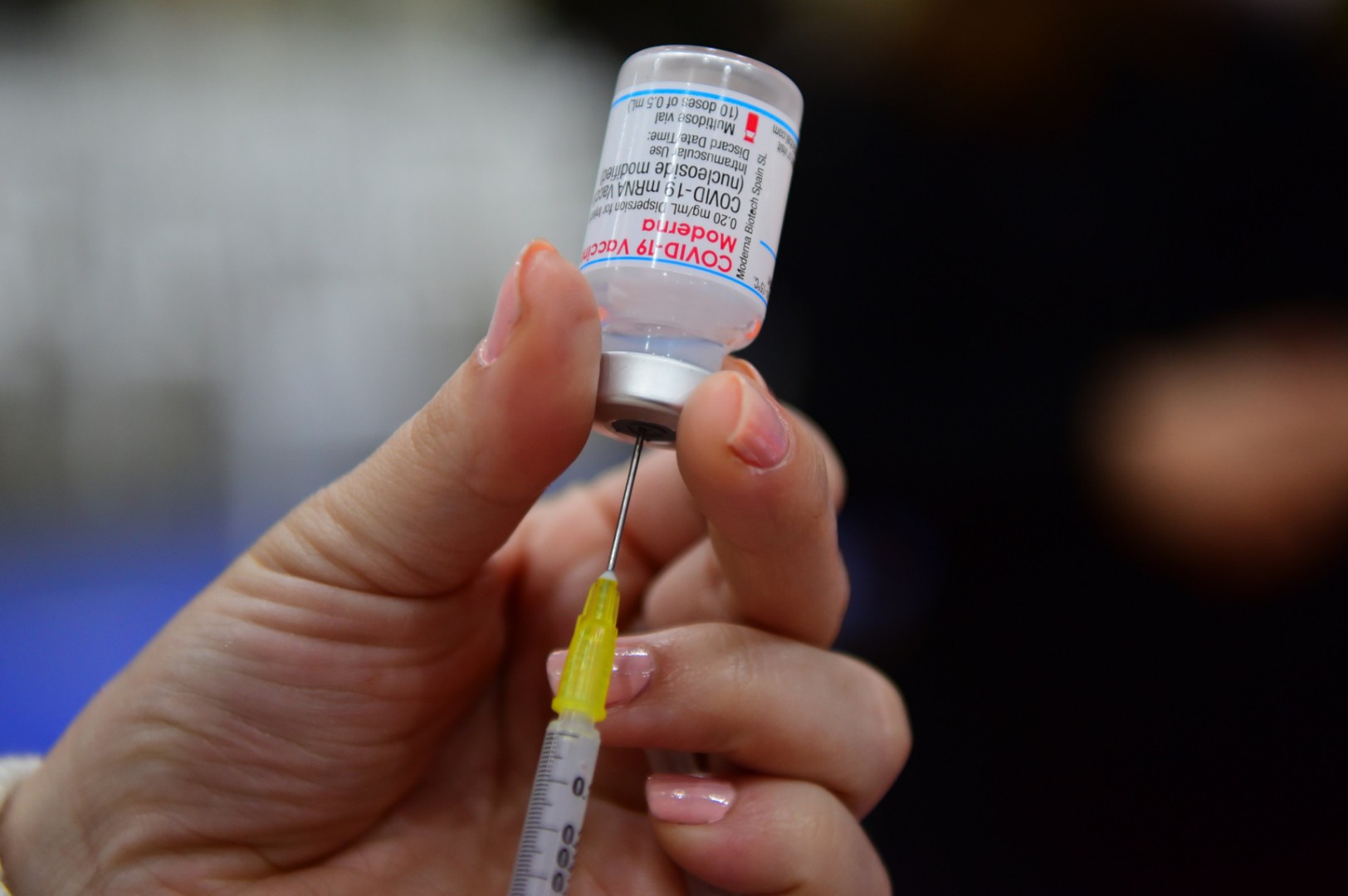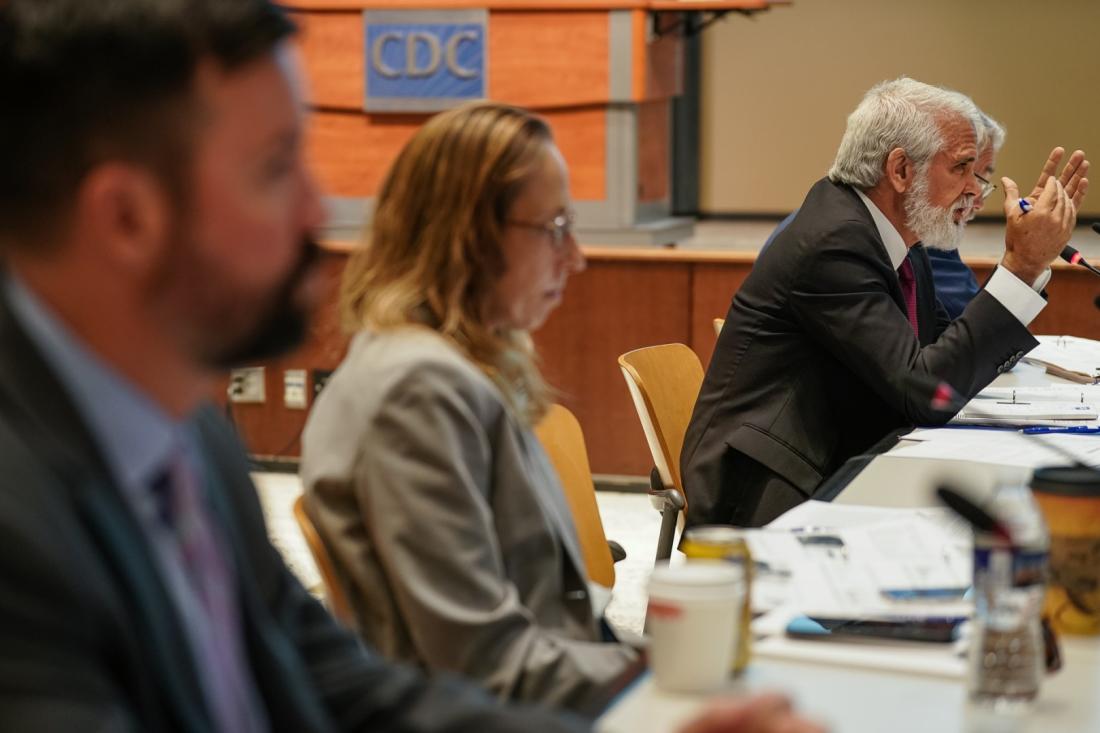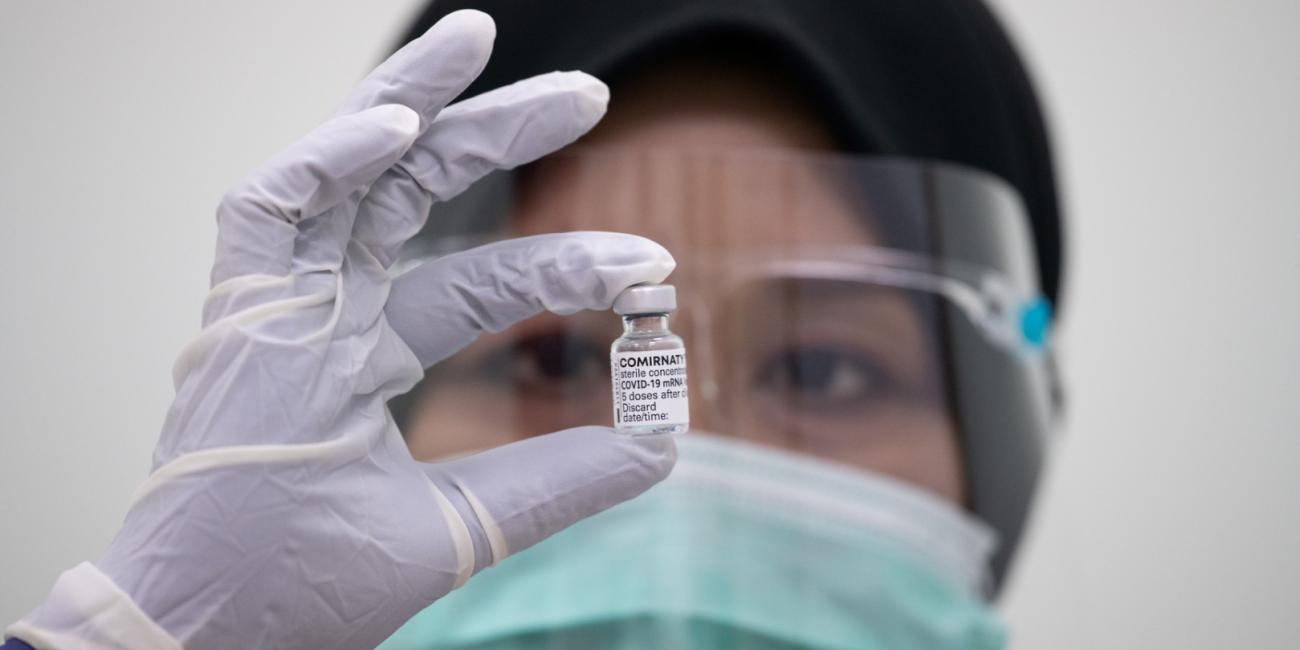
Experts say HHS document misrepresents studies on Covid-19 vaccine
- Published on June 27, 2025 at 20:43
- 5 min read
- By Gwen Roley, AFP Canada, AFP USA
Kennedy, who has a long history of promoting vaccine misinformation, is using his role as health secretary to shake up the country's approach to immunization. He has deflected questions from lawmakers about measles vaccination, despite an outbreak that has killed three children, and misrepresented the position of European health agencies regarding vaccines against chickenpox during Congressional testimony.
In late May, he circumvented the usual channels for updating vaccine recommendations and announced that the US Centers for Disease Control and Prevention (CDC), which operates under his department, would stop recommending routine Covid-19 shots for pregnant individuals and "healthy children."
The reversal on booster shots during pregnancy marked a major departure from previous CDC guidance and a document (archived here) -- reportedly distributed to lawmakers in the days preceding Kennedy's announcement -- to justify such change has raised the alarm for some health professionals about how HHS uses scientific evidence to inform policy decisions.

Maria Velez, an associate professor of obstetrics and gynecology at Canada's McGill University (archived here), told AFP the findings of her paper, "Miscarriage after SARS-CoV-2 vaccination: A population-based cohort study," were misinterpreted in the text (archived here).
"Our study shows that SARS-CoV-2 vaccine is not associated with an increased risk of miscarriage, either for remotely vaccinated or recently vaccinated women," she said in an email on June 23.
AFP reached out to HHS for comment and did not receive a response, but the department previously told other publications it included Velez's research because it showed a higher occurrence of miscarriage among vaccinated individuals.
Velez said the raw data included in her study showed a slightly higher incidence of miscarriage among pregnant people who received the shot, but pointed out when the results were adjusted for other variables which could result in loss of pregnancy, her findings did not show an increased risk associated with vaccination.
Additionally, Devora Aharon, a reproductive endocrinologist and infertility specialist based in New York City (archived here), told AFP her study looking at Covid-19 vaccination in people undergoing in-vitro fertilization cited in the document did not find an association between the shots and adverse stimulation or early pregnancy outcomes (archived here).
"Our study provides evidence to support safety of Covid-19 vaccination in women who are trying to conceive," she said in a June 26 email.
In a June 13 statement (archived here), president of the American College of Obstetricians and Gynecologists, Steven J. Fleischman (archived here), said the document misused data and incorrectly quoted study findings, sowing doubt about the safety of vaccines.
He denounced a reference to supposed findings on placental blood clotting citing a study that found no such results but, instead, reestablished the infrequency of negative side effects (archived here).
"The latest correspondence from HHS regarding the decision to rescind the Covid-19 vaccine recommendation for pregnant women further confirms that the decision was not made based on any new research or latest scientific evidence," he noted.
Research has demonstrated that the Covid-19 vaccine is generally safe during pregnancy and a meta-analysis of 66 studies found vaccination reduced the odds of infection and hospitalization, while the most common adverse side effect was pain at the injection site (archived here and here).
Children and Covid-19 vaccines
The Covid-19 vaccines are estimated to have saved millions of lives (archived here). Physicians and immunology experts have continually told AFP the risks of being infected with the virus far outweigh potential, infrequent side effects from the shots (archived here).
Age raises the risk of serious illness and the World Health Organization only recommends vaccination beyond an initial series for children and adolescents with comorbidities (archived here and here).
According to the CDC website, the agency still recommends(archived here) boosters for children who are immunocompromised and retained (archived here) the Covid-19 shots on the schedule for healthy youth but added a section about "shared decision-making" between parents and health providers on the administration of the vaccine.
The HHS memo sent to lawmakers put a particular emphasis on myocarditis and pericarditis, inflammations of the tissue around the heart.
While these are noted as possible side effects of Covid-19 vaccination, with a slightly higher prevalence of the reaction observed among younger male recipients of mRNA shots, the papers cited in the memo included a study previously featured in misleading claims debunked by AFP (archived here).
The research only found the inflammatory conditions among vaccinated youth, but one of the paper's authors noted to AFP at the time that the observational study may have missed cases in unvaccinated patients which would have been picked up in a randomized trial.
The study also found the cases of myocarditis and pericarditis were mild and fast resolving, while vaccination reduced hospitalization from Covid-19.
Another study looking at data from the HHS run Vaccine Adverse Events Reporting System claimed a strong association between vaccination and myocarditis and death (archived here), but one of the authors has a history of spreading false information about the shots. Additionally, the journal Therapeutic Advances in Drug Safety, where the study appeared, issued an expression of concern about potential issues with the methodology and conflicts of interest (archived here).
Dubious evidence
The misrepresentation of studies' findings in the document fits into a larger pattern of HHS overhauling health policy while citing dubious evidence.
The highly anticipated "Make America Healthy Again" report released on May 22 investigating children's health was initially published citing several sources that did not exist. It was updated, but experts said it still contained errors, including the misrepresentation of research findings.
Kennedy also dismissed all 17 members of the Advisory Committee on Immunization Practices (ACIP), accusing them (archived here) of being compromised by financial ties to pharmaceutical companies.
He replaced them with several individuals known to spread vaccine misinformation, including controversial researcher Robert Malone, who has promoted the antiparastic drug ivermectin to treat Covid-19.
The former ACIP members published an editorial in the JAMA medical journal, saying their removal and the reduction of CDC staff had critically weakened the US vaccine program.
The first meeting held by the new ACIP appointees saw a slideshow set for presentation revised after a fabricated citation was briefly posted on the CDC website.

The committee said it plans to revisit the childhood vaccine schedule and voted to bar thimerosal, a rarely used ingredient that can prevent bacterial contamination in multidose vials of influenza vaccines.
The move leans in to messaging from the anti-vaccine movement, which regularly questions shot ingredients despite no evidence of harm.
Read more of AFP's reporting on health misinformation here.
Copyright © AFP 2017-2026. Any commercial use of this content requires a subscription. Click here to find out more.
Is there content that you would like AFP to fact-check? Get in touch.
Contact us




